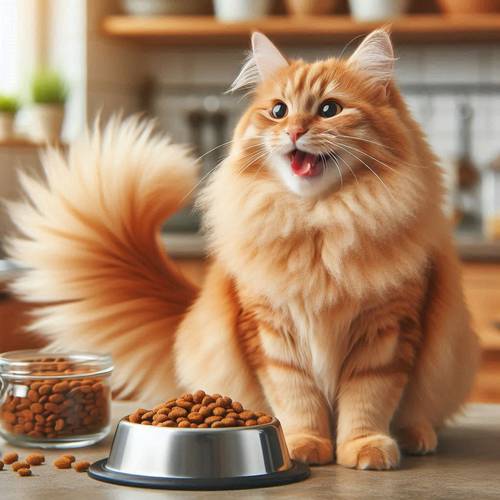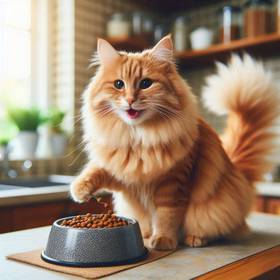Essential Nutrients for Cats
Cats require a diet rich in essential nutrients to thrive. Proteins are crucial for muscle maintenance, while taurine supports heart and eye health. Fats provide energy and aid in nutrient absorption. Vitamins, such as A and D, promote vision and bone health. Minerals like calcium and phosphorus strengthen bones and teeth.
Omega-3 and omega-6 fatty acids enhance coat and skin condition. It's important to provide a balanced diet with high-quality commercial cat food or carefully planned homemade meals, ensuring all these nutrients are included for your cat’s overall well-being and longevity.
Omega-3 and omega-6 fatty acids enhance coat and skin condition. It's important to provide a balanced diet with high-quality commercial cat food or carefully planned homemade meals, ensuring all these nutrients are included for your cat’s overall well-being and longevity.
Protein Sources
Protein is essential for cats eat, as they are obligate carnivores. Ideal protein sources for cats include chicken, turkey, beef, and fish, which should be cooked to eliminate harmful bacteria. High-quality commercial cat foods often incorporate these meats, providing a balanced diet.
Eggs and certain dairy products can also be protein-rich options, but in moderation due to potential lactose intolerance. For those considering a raw diet, it’s crucial to consult a vet to ensure all nutritional needs are met safely. Protein supports muscle maintenance, energy levels, and overall health in cats.
Eggs and certain dairy products can also be protein-rich options, but in moderation due to potential lactose intolerance. For those considering a raw diet, it’s crucial to consult a vet to ensure all nutritional needs are met safely. Protein supports muscle maintenance, energy levels, and overall health in cats.



